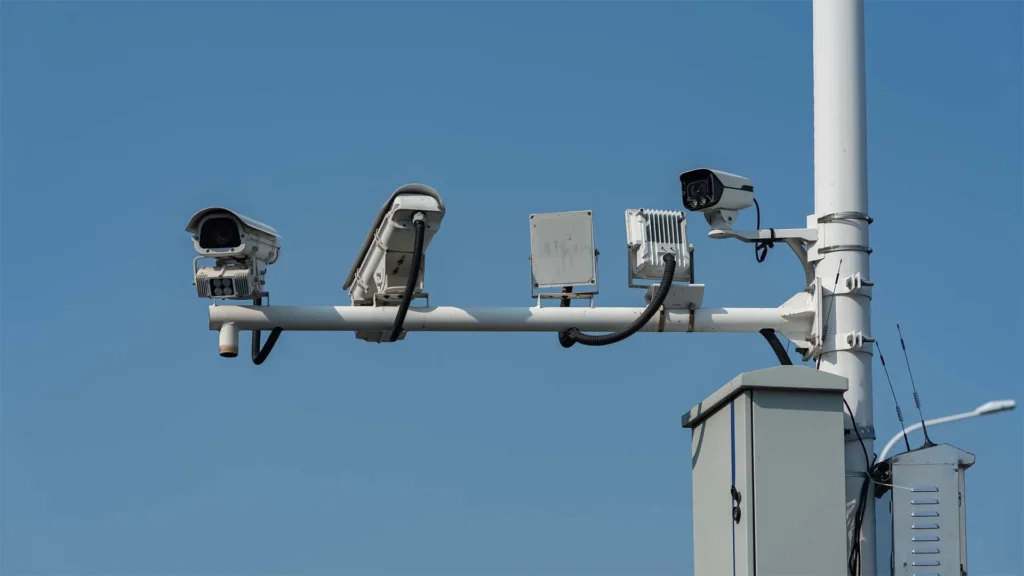In Georgia, the debate surrounding traffic cameras is heating up. Some lawmakers want to scrap these cameras, claiming they’re sneaky cash machines. But supporters argue they keep our roads safer. This conflict over cameras is just getting started, and it’s causing quite a stir.
Lawmakers and citizens are divided. Those in favor see cameras as essential for controlling speed, while critics view them as revenue-generating schemes. The controversy is now spilling over into Georgia’s legislature, with differing opinions making headlines. Both sides have compelling points, making it a topic of hot discussion.
The Money vs. Safety Debate
Georgia’s House Bill 225 aims to eliminate traffic cameras, with over 100 representatives backing it. Critics argue that these cameras prioritize profit over public safety. Dale Washburn, the Macon Republican, shared emails from upset drivers who received tickets without proper warning. These tickets, although civil, disrupt vehicle registration if unpaid, with 125,000 violations still pending.
A Lucrative Venture for Camera Companies
Camera companies are not just enforcing laws; they are also playing politics. With $112 million generated from tickets and companies like RedSpeed and Blue Line Solutions contributing $500,000 to political campaigns, it’s clear there’s big money involved. This financial influence raises questions about the true intent behind these cameras.
Proposed Reforms: Not an End, But a Change
Not all lawmakers want to eradicate cameras. Some propose reforms to enhance fairness, such as improved signage and limited operational hours. Senator Max Burns supports Senate Bill 75, aiming to alert drivers entering school zones without excessive penalties. Another bill suggests directing half the revenue to improve school safety.
Decatur: A City Under the Lens
In Decatur, cameras have left a mark. Mayor Garrett recalled past accidents that prompted camera installation to protect the city’s students. With most kids on foot or bicycles, the cameras aim to prevent danger. Despite the controversy, Decatur stands by its decision.
Speeding Down but Not Out
Despite a 92% reduction in speeding thanks to speed studies, a significant number of citations were issued in Decatur, totaling 4,500 last January. Decatur officials highlight their strategic signage and limited camera hours, proving that deterrence, rather than penalization, can be the key to safety.
Financial Incentives and Unintended Consequences
Critics argue that profit motives from camera-generated revenue can corrupt safety intentions. As John Moore from Milledgeville expressed, profit-driven enforcement is unreliable. This assertion paints a picture of mistrust and demands reconsideration of camera usage motivations.
Public Sentiment and Political Influence
There’s no doubt Georgia’s camera debate intertwines public opinion and political contributions. The donations by major camera companies show the extent of influence, making it crucial for citizens to question motivations and demand transparency. As the debate continues, understanding both sides becomes vital.
Next Steps for Georgia’s Lawmakers
With several bills in motion, Georgia legislators must decide whether to maintain, reform, or eliminate traffic cameras. While some push for absolute removal citing corruption risks, others favor adjustments for fairness. Meanwhile, the public watches closely, aware that their safety and dollars hang in the balance.
A Community Divided
In Georgia, the traffic camera dilemma remains a contentious issue. Opinions vary, with strong arguments from both sides. As the legislature navigates these waters, the decision will likely have lasting impacts on road safety and local government funding.
Georgia’s debate over traffic cameras isn’t just about money or safety; it’s about trust. As lawmakers debate these cameras’ roles, their decisions will reflect societal values. Whether cameras remain or go, one thing is clear: how we keep streets safe is a topic that touches everyone.





